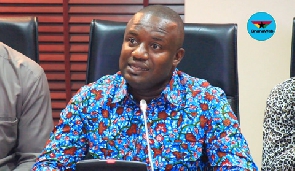The Accra Water Conference ended on Wednesday with a declaration calling for a series of concrete steps that would cut the portion of Africa without access to safe water by 75 per cent by 2025.
These include improved access to potable water services and sanitation, water use to address food security and income generation, integrated water resource management (IWRM) and national and shared water basins and water-related disaster prevention, mitigation and management.
Other steps are empowerment and capacity building focused on improving equity and gender and pro-water governance and water supplies. The Accra Conference has been described as the continent's most ambitious attempt ever to solve the continent's severe water crisis. The Declaration noted that Africa had the worst water situation than any continent. "Only about 60 per cent of Africa's 680 million people have access to safe water supplies," it said.
"People in the worst-off 40 countries, at least half of them in Africa, must try and meet all their water and sanitation needs on an average of 30 litres or less per day (eight gallons), far less than 50 litres (13.2 gallons) per day level that the United Nations says constitutes the absolute minimum for water needs.
"The daily per capita water requirements include five litres for drinking, 20 for sanitation and hygiene, 15 for bathing and 10 for food preparation, per person." Globally, more than one billion people do not have access to safe drinking water, and half of the population lacks adequate sanitation. More than two million people die annually from water-related diseases.
About 300 delegates, including government officials from all sub-Sahara, representatives of industrial countries, international organisations such as the World Bank, UN, private industry and NGOs attended the Conference. The guest of honour was the Dutch Crown Prince Willem-Alexander, who is a special adviser to the UN Secretary-General.
Delegates met in both general sessions and specialised meetings in working groups on such subjects such as "water-food security and international agricultural trade," and "water and sustainable development in Africa"
The Accra Declaration said: "Water is the basis of life and development and its use and protection must underpin the rejuvenation of Africa and the achievement of all goals established by African Heads of State in the Millennium Declaration of 2000."
The Declaration also backed the New Partnership for Africa's development (NEPAD), describing it as a "bold initiative whose success will require the application of all of Africa's human, economic, technological and natural resources."
"We have concluded that water can make an immense difference to Africa's development if it is managed and used wisely," the Declaration said. "Given clear priorities and strategies and real commitments to implementation, we can use water to eradicate poverty and achieve sustainable development in Africa."
The delegates said the 2002 Johannesburg World Summit on Sustainable development and the Kyoto Third Water Forum offer the opportunity to report, evaluate and account in structured manner on progress made since the Hague World Water Forum in 2000 at which Frameworks for Action were established.
"We recommend that these be used to review both global and African progress and identify and propose actions to bridge any gaps that may appear between commitments, delivery and goals."
The delegates said Africa had to develop specific action programmes to meet the challenge so that the proportion of Africans without access to basic water supply and sanitation is reduced by 50 per cent by 2015 and 75 per cent by 2025.
General News of Thursday, 18 April 2002
Source: gna
















